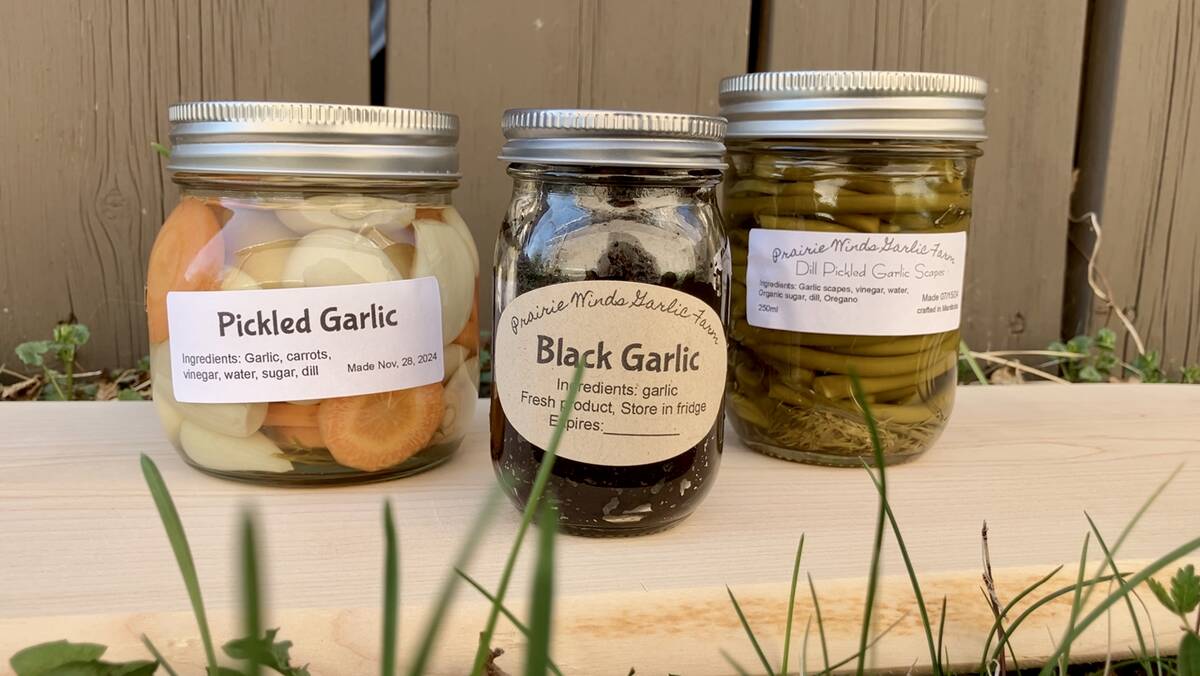Grain bag manufacturers have been shirking their responsibilities, according to one of the first retailers to sell grain bagging equipment in Canada.
“The bag manufacturers run and hide in the woods the minute somebody asks them about responsibility for used grain bags,” said George Adair, owner of Adair Farm and Ranch Supply in Moosimin, Sask.
He said the companies that make the bags should be held accountable for littering the prairie landscape. Instead, they pass the buck onto farmers and taxpayers.
“Ask a bag manufacturer what to do with your used bags and he’ll tell you to go ask the guy that sold you the bagger. Well, that’s me. And I don’t have the answers because the bag manufacturers themselves don’t have the answers,” Adair said.
Read Also

Growing garlic by the thousands in Manitoba
Grower holds a planting party day every fall as a crowd gathers to help put 28,000 plants, and sometimes more, into theground
“That’s why I don’t sell grain bags. I just sell equipment. The bag people all try to get me to sell their brand. I tell them first they’ve got to step up and take some responsibility for what they sell. The bags are their product, not mine. Right now, they’re all getting a free ride. Yes, I need the bag manufacturers, but they’re not my best buddies.”
Prairie producers share Adair’s frustration.
Mike Rainforth of Lacombe, Alta., has almost 25 grain bags rolled up in the bush after two years of using his REM bagger.
He said he’s happy with the bagger but frustrated with the lack of leadership when it comes to dealing with his empty bags.
“I was hoping to recycle them, but then I made a few phone calls and it sounded like I had to wash them and put them through a baler. Plus I needed to round up a whole semi load before they were interested,” he said.
“I’d have to unroll them and somehow wash them and then bale them up tight. Well, who’s going to go through all that work just to give them away for free?”
“I was kind of giving up on them, so I thought I’d just pile them on the brush pile and burn them. But then I read somewhere it’s illegal to burn them. It seems a shame to waste them if there’s some way to we could recycle them.”
Moving used grain bags from Sask-atchewan farms to a processor in Oregon is Travis Quirk’s job.
Quirk, co-ordinator for the Sask-atchewan Agricultural Plastics Recycling program, is responsible for the province’s seven portable bag rollers. His goal is to see that every used grain bag ends up in a recycling plant.
“Unfortunately, the most common method of disposal right now is burning, but burning is not only illegal, it also puts toxic carcinogens into the air you breathe,” said Quirk.
“Driving around the province last fall, it looked like every quarter section had a grain bag. It was a huge bumper crop, so every available grain bag got sold. Nobody seems to know how many bags, except that it was a lot. And now some grain is moving, so we’re going to see thousands of empty bags piling up.”
The bag rollers, which were de-signed by Brown Brothers of Milestone, Sask., are available free to farmers.
“They’re quite easy to use and they’re mounted on a trailer so you can pull it with a half ton,” Quirk said.
“It’s made to carry five bales, so when you return it to the pick-up point, you can bring some bales at the same time.”
Quirk said the first pilot program was initiated by Moose Jaw River Watershed Stewards in 2010.
The pilot program went province-wide in 2011, the year it started shipping spent bags to a recycler in Alberta.
The Alberta facility stopped taking grain bags because of the time and expense involved in cleaning them. This forced Quirk to find another destination, which turned out to be in Oregon.
For more information, contact Adair at 306-435-4211 or visit www.adairsales.com or contact Travis Quirk at 306-955-5477 or visit www.saskpcab.com.

















